Writing
Lillian Ruth Kessler
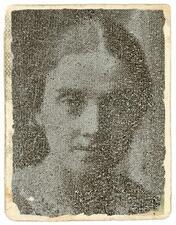
Helene Khatskels
As a member of the General Jewish Workers’ Bund, Helene Khatskels fought to realize socialist ideals about autonomy and liberation. As a Yiddish teacher and writer in Tsarist Russia and later the Soviet Union, she demonstrated a commitment to spreading and inspiring pride in Yiddish culture.
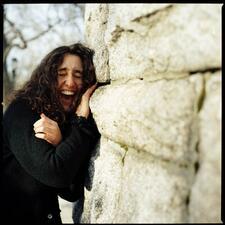
Loolwa Khazzoom
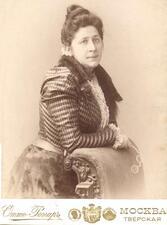
Rashel Mironovna Khin
Rashel Mironovna Khin hosted salons that made her the toast of Imperial Russia, and, with the help of the novelist Ivan Turgenev, became the first Jewish woman to publish major literary works in the Russian language. As an affluent member of the Jewish merchant class, she received a first-class European education and portrayed the anxieties of the Russian-Jewish elite in her fiction.
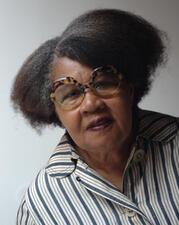
Jamaica Kincaid
Born Elaine Cynthia Potter Richardson, Jamaica Kincaid is a Jewish Afro-Caribbean author. She was sent to the United States from her birthplace in Antigua at the age of sixteen and became a writer while living in the United States.
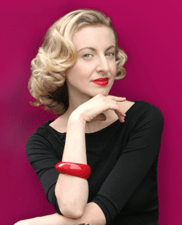
Poppy King
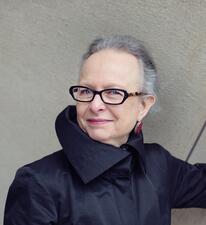
Barbara Kirshenblatt-Gimblett
Barbara Kirshenblatt-Gimblett is an American folklorist who is a scholar of Jewish cultures of Eastern Europe, North America, and Israel, museums, heritage, and tourism, as well as a curator of exhibits and documentarian. She is Chief Curator of the core exhibit of the POLIN Museum of Jewish history in Warsaw.
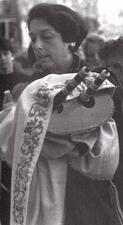
Francine Klagsbrun
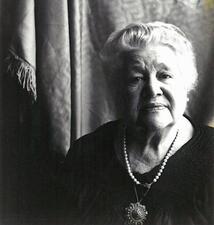
Bertha Klausner
Bertha Klausner was an influential literary agent in New York and Los Angeles. One of the earliest female literary agents, she represented major writers and cultural figures throughout the twentieth century.
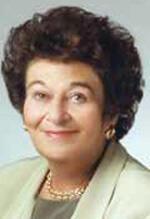
Gerda Weissmann Klein
Holocaust survivor Gerda Weissmann Klein has used her experiences to educate countless people through her books, television appearances, and motivational speaking. Among numerous other awards for her work, Klein was appointed to the United States Holocaust Commission by President Clinton in 1997, and in 2011 she was awarded the Presidential Medal of Freedom by President Obama.
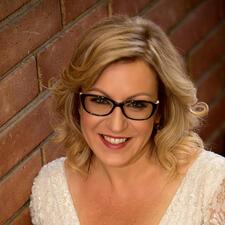
Zoë Klein
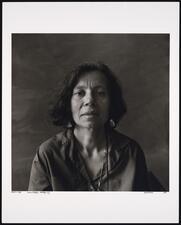
Irena Klepfisz
Irena Klepfisz is a poet whose legacy is key to the history of Jewish, American and lesbian literature. Klepfisz is also a pioneer of the recovery of Jewish and Yiddish women’s writing, to which she has dedicated translations, research, teaching, and activism.
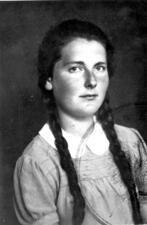
Bronia Klibanski
Bronia (Bronka) Klibanski was one of the heroic Kashariyot (couriers) of the Jewish resistance during the Holocaust. She became the primary kasharit for the Dror Zionist group in 1943, obtaining critical weapons for the Bialystok ghetto revolt, gathering intelligence, rescuing other Jews, and saving the secret archive of the ghetto.
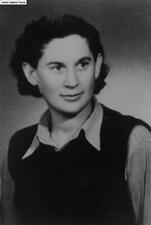
Chajka Klinger
Chajka Klinger, a member of Ha-Shomer ha-Za’ir, was active in the resistance against the Nazis in Bedzin and Warsaw. Her mission was to live, so that she could keep the flame and memory of resistance alive. Her diaries were the first written evidence about the Warsaw Ghetto uprising to escape Nazi Europe.
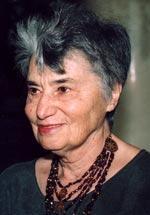
Ruth Klüger
A Holocaust survivor from Vienna (1931-2020), Ruth Klüger emigrated to the United States in 1947 and pursued a career in academia. Her German-language autobiography weiter leben: Eine Jugend (1992) revealed her personal experience of the Holocaust to the public, establishing her as one of the leading public intellectuals on the Holocaust in Austria and Germany.
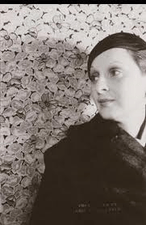
Blanche Wolf Knopf
Blanche W. Knopf made the publishing firm she shared with her husband one of the most respected in the world, bringing some of the greatest American and European thinkers of the twentieth century to an American audience.
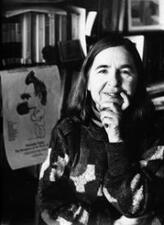
Sarah Kofman
Sarah Kofman was a French Jewish philosopher and professor who published many books on Freud, Nietzsche, Rousseau, and more.
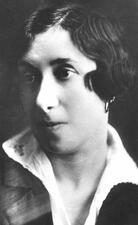
Feiga Izrailevna Kogan
Poet Feiga Izrailevna Kogan was born into the Moscow Jewish community in 1891. Throughout her life she composed books of and about Russian poetry while harboring a love of Hebrew. Some of her works include: Moia dusha (My Soul) and Plamennik (The Torch).
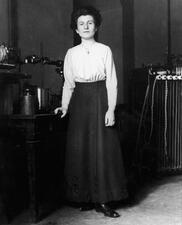
Hedwig Kohn
Born in Breslau, Hedwig Kohn was one of the early woman pioneers in physics. After a narrow escape from Nazi Germany, she went on to teach at Wellesley College and pursue independent research at Duke University in the field of flame spectroscopy, measuring absorption features of atomic species in flames.
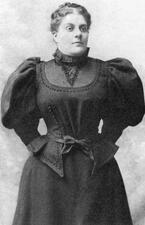
Rebekah Bettelheim Kohut
Gertrud Kolmar
Gertrud Kolmar was a prolific German-Jewish poet. Kolmar published three collections of poetry during her lifetime, primarily detailing the experiences of women as mothers, childless women, lovers, mourners, travelers, and the persecuted. Kolmar’s work is a vehicle for readers of the early twenty-first century to come to terms with the events of the Shoah.
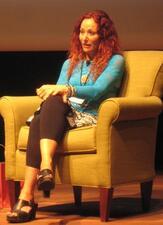
Aline Kominsky-Crumb
Aline Kominsky-Crumb was a pioneer of the autobiographical comics genre and a leading figure in the feminist underground comics movement. Her career as a cartoonist began in 1972, when she joined the Wimmen’s Comix collective in San Francisco and published her first comic Goldie. A Neurotic Women. She went on to author, publish and co-edit several books and magazines, including the comics anthology Love That Bunch (1990), and the graphic Memoir Need More Love (2007).
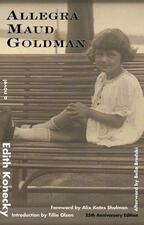
Edith Konecky
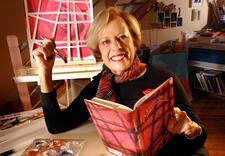
EL Konigsburg
Elaine Lobl Konigsburg is best remembered from her many beloved children’s novels, including The Mixed-Up Files of Mrs. Basil E. Frankweiler, Jennifer, Hecate, Macbeth, William McKinley and Me, Elizbeth, and The View from Saturday. Her novels and her characters reflect the angst of growing up in a middle-class world and finding your way, no matter where you come from.
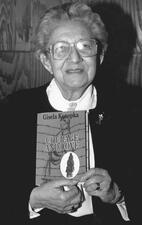
Gisela Peiper Konopka
Berlin-born Gisela Konopka built an international reputation as a group social worker and expert on youth issues. Lauded for her involvement in the rebuilding of social services and education in post-war Germany and beloved by her students at the University of Minnesota, Konopka received more than 42 awards in her lifetime.


